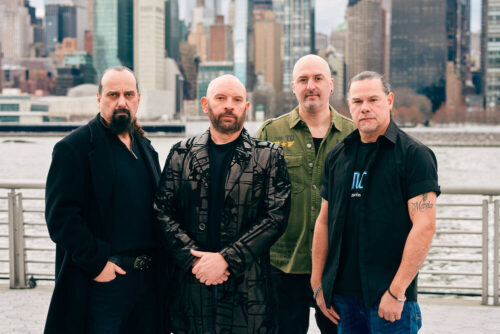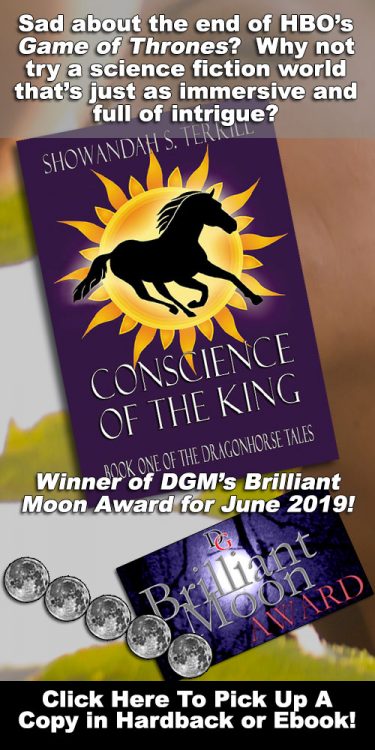
Band/Artist: Ice Age
Release House: Sensory Records
Genre: Progressive Rock/Progressive Metal
One Sentence Synopsis: New album from New York Progressive Rock band Ice Age
Series: Standalone
Single/EP/Album: Album
Release Date: March 10, 2023
Estimated Length: 66 minutes
MSRP: $10 (digital); $14 (CD)
Website: Click Here
Music Video: Click Here
Purchase Site: Click Here
Reviewed by: Kastrophylax
Final Score: 4.5 Moons (out of 5)
Ice Age was formed in 1991 by four friends from college with a mutual interest in the music of classic progressive rock bands. Their goal was to blend the majestic melodies and complex instrumentals and song structures from 1970s prog with the heavy riffing of the emerging 1990s metal scene. Following the path carved out by Dream Theater, Ice Age joined a few other talented bands in the burgeoning progressive metal movement. Signing with Magna Carta—a label purporting to support new progressive music experiments—Ice Age produced their debut album The Great Divide in 1999. On this record, one can hear Ice Age’s distinctive interpretation of the progressive metal subgenre: the complex sophistication of Rush (driven by Hal Aponte’s drumming), technical and heavy riffing of Dream Theater and Metallica (supplied by Jimmy Pappas’ guitar work), and soaring vocals, dense keyboard collages, and synthesizer soloing in the vein of Styx and Kansas from Josh Pincus. Following the release of their second album Liberation in 2001, Ice Age went through a style and name change. They released one EP under the moniker Soulfractured. 2023 marked Ice Age’s triumphant return to the prog music scene after two decades with their brand-new album Waves of Loss and Power.

Theme
The arrangement of Waves of Loss and Power is interesting. The album starts out with a powerful punch with the first single, “The Needle’s Eye.” This song’s lyrics are pessimistic, addressing current political and social issues with veiled references and allegorical imagery. Musically, the song packs in many of Ice Age’s progressive features in just under seven minutes: intricate rhythmic subdivisions, thundering double-bass kicks, chugging riffs, and frantic guitar and keyboard solos. This leads into “Riverflow”—also the second single—a mid-paced song with positive, uplifting lyrics about finding one’s way in life through good and bad times. Despite the song’s pace, it is by no means a traditionally structured rock song, with rhythmic shifts and short solos deftly weaved throughout the main melody and choruses.
Songs three through eight seem to form a conceptual unit of sorts. “Perpetual Child, Part II (Forever)” provides thematic continuity with the first epic on Ice Age’s debut album The Great Divide. Two mostly unrelated—or loosely related—songs follow the epic until the listener arrives at parts IV and V of “To Say Goodbye.” As with “Perpetual Child,” these two parts continue an epic ensemble from Ice Age’s debut. Part IV, as with Part I, is an instrumental, although this time being a piano solo by Josh Pincus rather than a full band production. Lyrically, Part V sets up a dichotomy of an older, simpler world with deep spiritual insight from religion and philosophy and a brave new world of science, with both offering answers to suffering. The song wraps up the album with an uplifting outro bringing both worlds optimistically into a hopeful future: “On our way; We’re all on our way…”
Presentation
Ice Age does very well in Waves of Loss and Power mixing familiar melodies and newer ones. Although the epics “Perpetual Child” and “To Say Goodbye” are directly connected to parts of the debut album, the band quotes melodies directly from previous parts and mixes in some variations of those same melodies in the new ones. The songs unrelated to epics have many fresh, memorable vocal passages and instrumental accompaniments, especially “Riverflow” and “Together Now.” Josh Pincus, whose voice resembles Dennis DeYoung of Styx, belts out some impressive vocal lines (layered harmonies, too, as in “All My Years”), and his voice sounds very healthy even after two decades.
Thankfully, Ice Age has not abandoned their progressive roots with this release. They announced this proudly in teasers leading up to the new album. Nevertheless, the band shows compositional maturity in blending the progressive hallmarks of rhythmic complexity and virtuosic soloing with accessible song structures and melodies. The transitions from melodic verses and choruses to different themes and solo sections are smooth and organic. They do not fall into the unfortunate trap that some prog releases have of sounding like a forced patchwork of solos and riffs. Therefore, a compositional balance is achieved, and this can also be heard in the instrumentals and soloing. While Pincus and Jimmy Pappas have brief moments of acrobatic synth and guitar solos, in many other places, they opt for subtle rhythmic and thematic shifts rather than outright soloing.
Producers Pappas and Pincus, the engineers, and Rich Mouser (mixing/mastering) must be praised for the final sonic product. All the instruments are crystal clear in the mix with perfect separation, balance, and no clipping or loud compression. Pincus’ vocals are positioned perfectly in the mix and his layered harmonies are expertly balanced. Most importantly, the drums sound wonderful: the snare has a natural “crack” to it, the bass drum has punch, and all the cymbals are phased in with clarity. Finally, the man playing the drums, Hal Aponte should be commended for his performance. His drum parts are well-thought-out and fit the needs of the music, sometimes complex with extended fills, and other times simple and tasteful.

Ice Age (L-R): Jimmy Pappas, Josh Pincus, Doug Odell, Hal Aponte
Audience Fit
Fans of the progressive rock and progressive metal genres will certainly appreciate Waves of Loss and Power. It could be described as falling more into the former category than Ice Age’s first two albums. It recalls classic Rush, Kansas, and Styx. Some of the riffing, however, brings to mind the heavier side of Dream Theater. If you like instrumental virtuosity, there is something for you; if you enjoy epic arrangements and good songwriting, you will find a lot to enjoy in this album as well.
Closing Thoughts
Waves of Loss and Power is well worth the wait for new Ice Age music. The band has not lost their creative and technical edges in the least. They have returned to their progressive roots and also shown considerable maturity in their songwriting. As the lyrics to “Riverflow” say, “You will find your way again… and you’ll find your way home.”
Theme: 5 Moons (out of 5.0)
Presentation: 4.5 Moons (out of 5.0)
Audience Fit: 5 Moons (out of 5.0)
Final Score (not an average): 4.5 Moons (out of 5.0)
![]()


October 10, 2024
wlgqbc
October 12, 2024
5mizmz
November 2, 2024
lrdf6x
November 10, 2024
4rxh92
November 17, 2024
kvuvd9